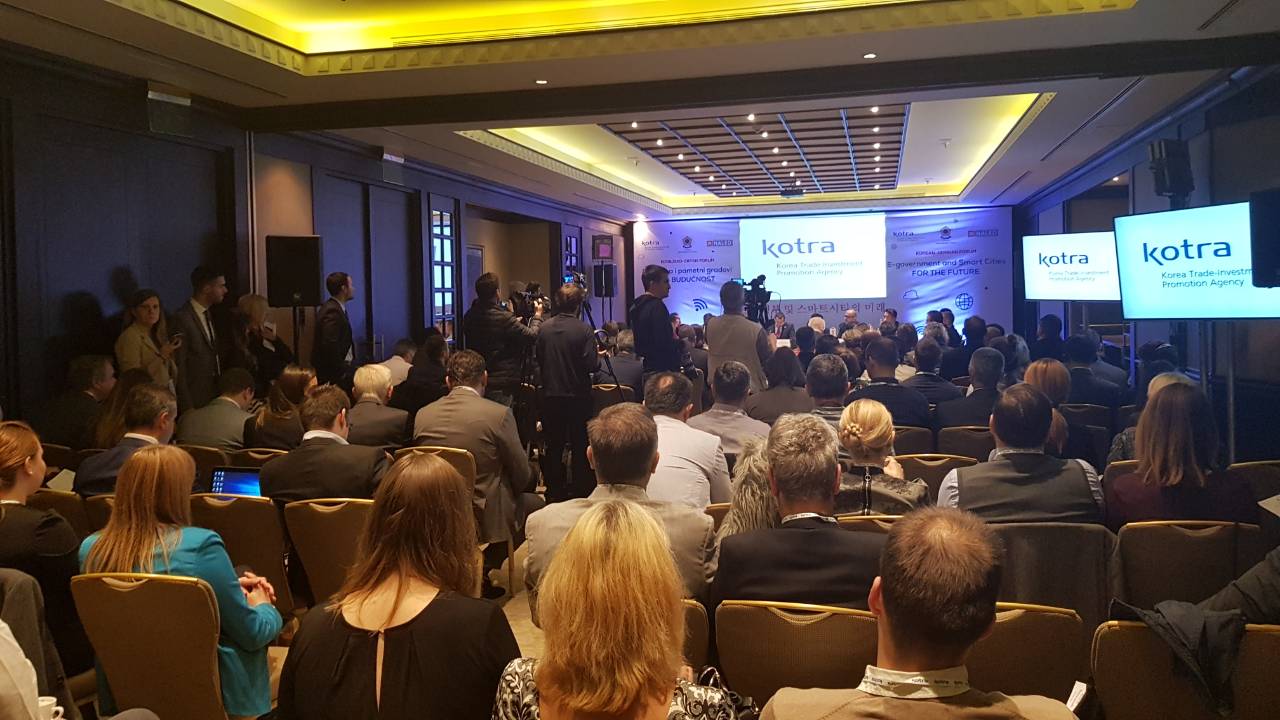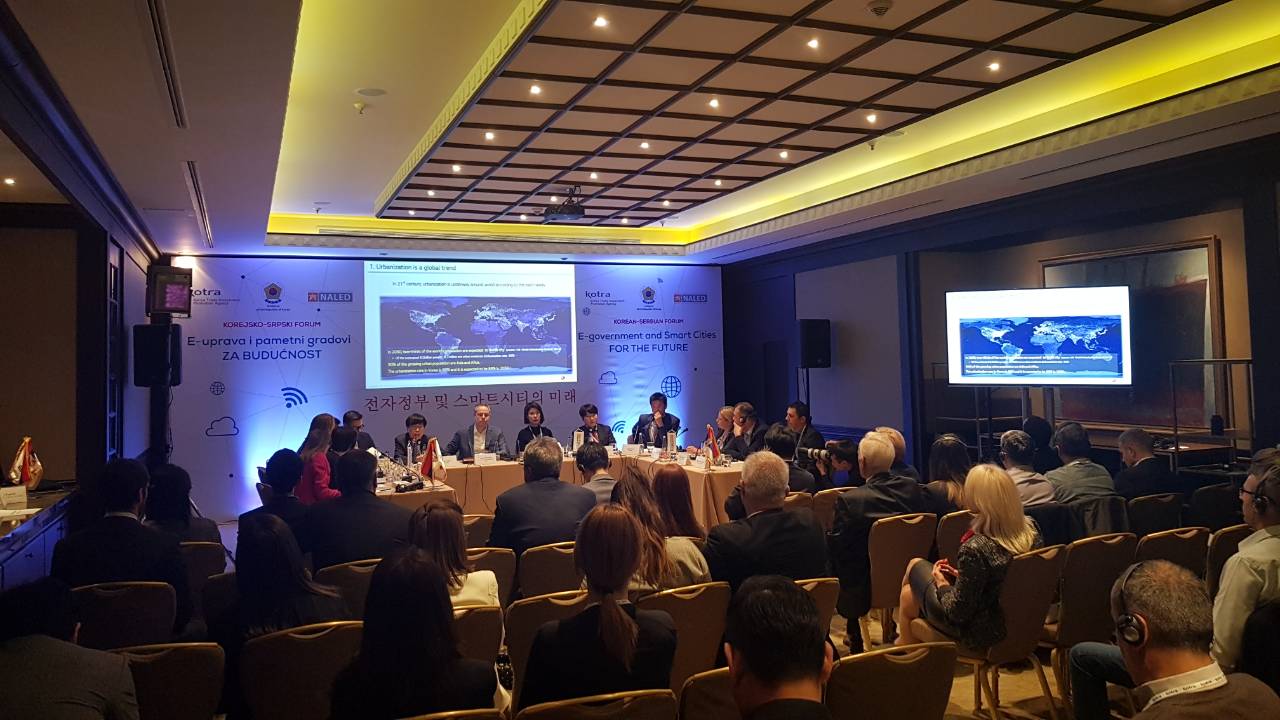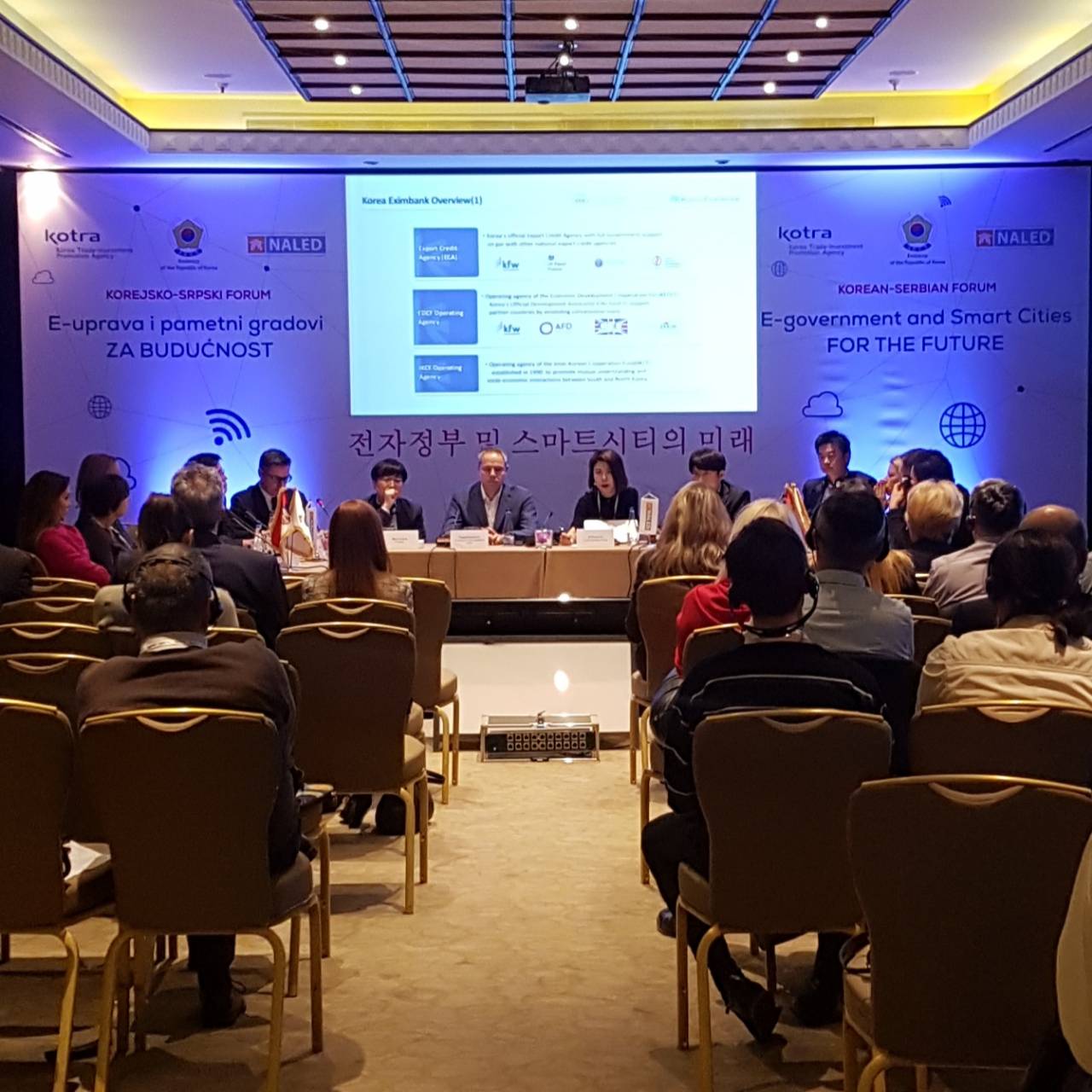The key to Serbia’s economic success is digitization, based on data exchange, not documents, and focused on the needs of citizens, not institutions. The key is learning on the experiences of other countries and understanding that e-government development is a moving meta – a process that can never be completed, was assessed today at the first Korean-Serbian Forum on eGovernment and smart cities, organized in Belgrade Korean Agency for Trade and Investment Promotion (KOTRA) in cooperation with the Embassy of the Republic of Korea and NALED.

– We are pleased to have the opportunity to discuss the best solutions with representatives of the most successful companies from Korea, a country that is on the United Nations list third in the development of eGovernment and a global leader in citizen involvement in the use of e-services. Korea in this segment is one generation step ahead of us. While Serbia is in the process of e-governance 2.0 development, citizen oriented and two-way internet communication, Korea has moved into the development of eGovernment 3.0, tailored to each individual, communication that through a portal such as ePeople provides a proactive role for citizens in state affairs and which is predominantly based on the use of mobile phones – said Željko Tomić, president of NALED’s e-Government Alliance and director of OSA Computer Engineering.
Charge d’Affaires in the Embassy of the Republic of Korea, Hunso Jun, reminded that this year, Korean investments in Serbia have doubled and that they were mainly focused on production. As an example, he mentioned the factory of enamelled copper wires Essex Europe in Zrenjanin, which will start working in November.
– Last year, Korea celebrated the golden jubilee of eGovernment application, has more than 18,000 information systems and is one of the first countries in the world to launch the development of smart cities through the Internet of Things technologies to find solutions for improving energy efficiency, traffic and utilities . We transfer experience and knowledge to more than 70 countries around the world, and the key area of further cooperation between Serbia and Korea in the future will be e-government and smart cities – added June.

The forum participants were leading leading innovators in ICT and Smart City technologies such as Korea Telecom, Icomer, Unidocs, Docson, Igloo Security, Good Consulting Company, LG U + and Grib. The business and professional community, state institutions, local self-governments and international organizations in Serbia presented the best practices and emphasized that the state’s support is crucial for the development of e-government.
The Korean-Serbian Forum was an opportunity to hear how to avoid the risks that accelerated digitization brings, primarily by creating a digital gap between the younger and the older, or urban and rural populations. An example of good practice is the Korean Internet Village Project that has increased the use of computers in rural areas from 37% to 72% in less than 10 years, and using the Internet from 9% to 66% and provided the opportunity for local people to use e-commerce placing products and creating opportunities for their economic empowerment.
